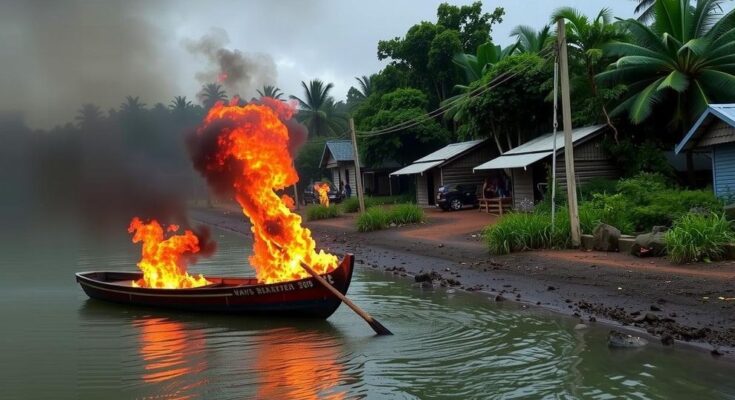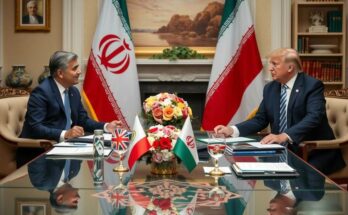Fighting in eastern Congo has escalated between the army and M23 rebels ahead of peace talks. The army accuses the M23 of killing civilians, while the rebels deny the claims. The conflict, fueled by external support allegations and a backdrop of humanitarian crises, raises skepticism about the peace negotiations scheduled for Sunday between Congolese and Rwandan leaders.
In eastern Congo, hostilities between the Congolese army and the M23 rebel group have escalated significantly in recent days, coinciding with imminent peace talks scheduled for Sunday. According to the Congolese army, the M23 rebels were responsible for the deaths of 12 civilians in the Lubero territory of North Kivu, a claim that the M23 spokesperson dismissed as government propaganda. As one of approximately 100 armed factions in the region, M23 is involved in the ongoing conflict over control of mineral resources, contributing to a severe humanitarian crisis with over 7 million displaced individuals.
The situation is further complicated by allegations of Rwandan support for the M23 group, which both Congo and the United Nations assert. Rwanda, although denying such accusations, admitted earlier this year to having deployed troops and missile systems in eastern Congo under the pretense of protecting its national security amidst tensions related to Congolese military movements near the border. A recognized troop presence, estimated by U.N. experts to be around 4,000 Rwandan forces, contributes to the instability in the region.
Despite a ceasefire agreed upon in July, which came into force in August, skirmishes have since resumed, drawing concern from international actors, including the United States. As Congo’s President Felix Tshisekedi and Rwanda’s President Paul Kagame prepare for their first official meeting since last year, analysts express skepticism regarding the outcome of the negotiations mediated by Angola. The local populace, particularly affected civilians, are fervently advocating for a resolution, hoping to restore peace and normalcy to their lives.
The ongoing conflict in eastern Congo, particularly involving the M23 rebel group, is situated in a region rich in mineral resources and characterized by violent struggles for control among various armed factions. This conflict has evolved into one of the largest humanitarian crises globally, with millions of individuals displaced as a result. Accusations regarding external support for such rebel groups, notably from Rwanda, heighten tensions, complicating peace efforts by both local and international stakeholders. Recent diplomatic efforts, including planned meetings between national leaders, signify attempts to address these issues despite the prevailing violence and skepticism among analysts.
In conclusion, the recent intensification of hostilities between the Congolese army and M23 rebels underscores the fragility of the situation in eastern Congo, just as critical peace talks are set to occur. The backdrop of human suffering and displacement, along with accusations of external involvement, poses significant challenges to achieving lasting peace. As leaders prepare to negotiate, the international community watches closely, hoping for a breakthrough that will alleviate the dire humanitarian crisis and restore stability to the region.
Original Source: apnews.com




